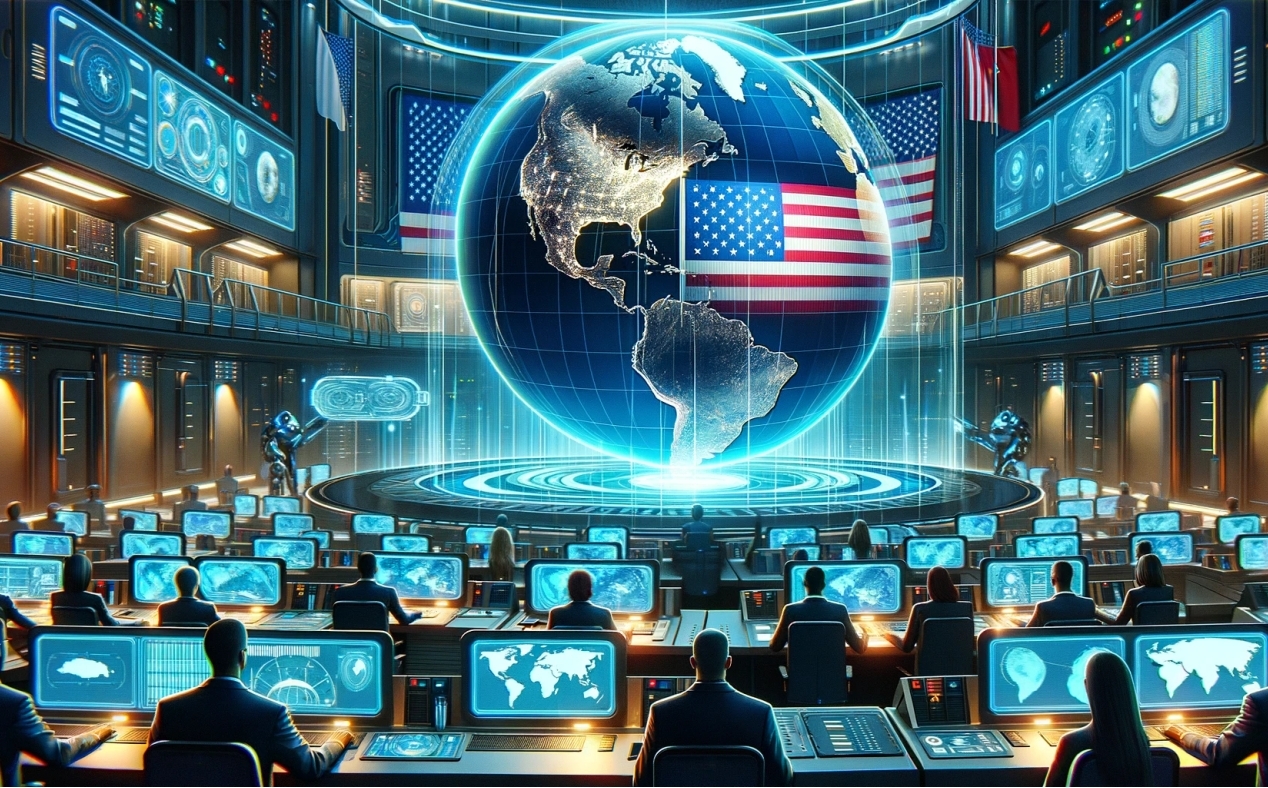
On May 8, 2025, a hearing focusing on global competition in artificial intelligence (AI) was held on Capitol Hill in the United States. Executives from OpenAI, AMD, CoreWeave, and Microsoft, the four major technology companies, spoke out on the same stage in a rare way, pointing the finger at the US government's escalating policy of restricting technology exports to China in recent years. The conference, titled "Winning the AI Competition: Enhancing America's Computing and Innovation Capabilities," superficially explores how the United States can consolidate its technological advantages, but in reality, it has evolved into a collective reflection and warning by the American technology community about White House policies - over regulation may allow the United States to tie its own hands in the AI competition, while China is quietly transforming from a pursuer to a rule reshaping player.
OpenAI CEO Sam Altman stated during the hearing that the current export restrictions on high-end AI chips and related technologies in the United States lack strategic vision. He cited the Chinese market as an example and pointed out that by 2024, the scale of China's AI industry has exceeded 800 billion yuan, accounting for over 30% of the global market. However, due to policy restrictions, American companies are unable to sell the most advanced H-series chips to Chinese customers, forcing Chinese companies to accelerate their independent research and development process. While we were still debating which chips required licenses, the computing power of Huawei Ascend 910B had already reached 80% of the international mainstream level, and the speed of narrowing this gap far exceeded expectations. ”Altman's speech was echoed by AMD CEO Su Zifeng. She revealed that after the US Department of Commerce included AMD's MI308 series chips in its export control list in 2024, the company's quarterly revenue in the Chinese market plummeted by 45%, while orders from local GPU manufacturers in China increased by 220% year-on-year, "like sending ammunition to competitors".
Microsoft Vice Chairman Brad Smith's warning has a more geopolitical tone. He cited data from a third-party organization stating that China's cloud computing infrastructure investment will reach $95 billion in 2024, of which 60% will be used in AI related fields, and US companies are unable to participate in bidding for these projects due to policy restrictions. When we need additional approval to build data centers in 'second level regulated countries' such as India and Switzerland, Chinese companies have already won 12 national level smart city projects in the Middle East and Southeast Asia. "Smith specifically mentioned the breakthroughs of Chinese technology companies in cutting-edge fields such as quantum computing and neuromorphic chips in the past two years, believing that" excessive protectionism will make the United States miss the key window of technological iteration.
The background of this hearing is intriguing. The latest report from the Semiconductor Industry Association of America shows that China's total imported chips in 2024 decreased by 18% year-on-year, but the proportion of independently designed chips has risen to 42%, and mature process capacity of 28 nanometers and above accounts for 58% of the world's total. In sharp contrast, companies such as NVIDIA and AMD have accumulated over $12 billion in inventory impairment losses in 2024 due to sales restrictions in China. What makes the American technology community even more anxious is that China's "New Generation Artificial Intelligence Development Plan (2025-2030)" clearly proposes to achieve a core AI industry scale of 1.5 trillion yuan by 2028, with a strategic path of "three synchronizations" of basic theory, key technologies, and ethical governance, and is building a technology ecosystem different from the West.
It is worth noting that behind the "honest words" of tech giants, there is a profound shift in the industry logic. When the United States attempts to contain China's technological progress through the "small courtyard high wall" strategy, the global industrial chain is showing a trend of "de Americanization". Taking the field of autonomous driving as an example, among the 30 new models launched by Chinese car companies in 2024, 24 of them adopt local chip solutions such as Horizon and Black Sesame; In the field of AI big model training, Huawei Atlas 900 cluster has undertaken 70% of orders from domestic research institutions. This "substitution effect" not only occurs at the hardware level - Baidu's Wenxin Big Model 4.0 surpasses GPT-4 in language comprehension ability in international benchmark tests, but is also seen by the industry as a symbol of China's AI soft power rise.
At the hearing, Michael Entrat, CEO of CoreWeave, raised a question that silenced lawmakers: "If American companies cannot participate in the development of AI infrastructure standards in China, will we be the enforcers of the rules or bystanders excluded by the rules in ten years? ”This question reflects the collective confusion of the American technology community: how will the global collaborative ecosystem required for technological innovation be maintained when the boundaries of "national security" are infinitely expanded and every technology is endowed with ideological attributes? Perhaps as The Economist recently commented, "Washington's chip war did not destroy China's technological wall, but instead made the walls of Silicon Valley covered in vines. In this competition that concerns the future, the reevaluation of the value of openness and cooperation may be more thought-provoking than the iteration of technology itself.

Amidst the global wave of technological transformation, artificial intelligence (AI) has become a key focus of competition among major tech giants.
Amidst the global wave of technological transformation, art…
In January 2026, the remarks by US Treasury Secretary Besse…
Less than three weeks into 2026, transatlantic trade relati…
On January 17, 2026, the Trump administration, under the pr…
When Musk set the goal of achieving a launch frequency of m…
A week after the largest nationwide protests in years, the …